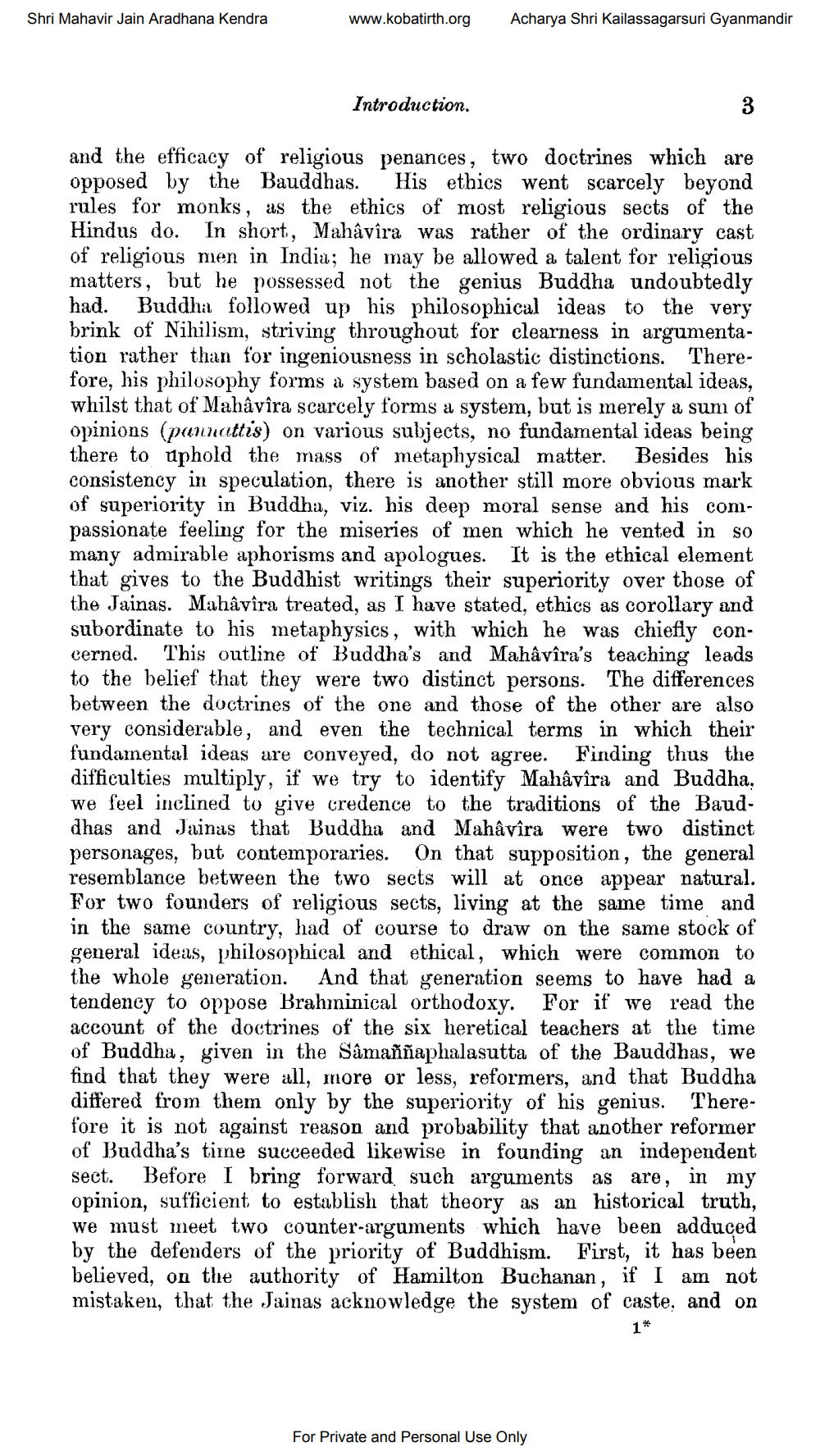________________
Shri Mahavir Jain Aradhana Kendra
www.kobatirth.org
Acharya Shri Kailassagarsuri Gyanmandir
Introduction.
and the efficacy of religious penances, two doctrines which are opposed by the Bauddhas. His ethics went scarcely beyond rules for monks, as the ethics of most religious sects of the Hindus do. In short, Mahâvîra was rather of the ordinary cast of religious men in India; he may be allowed a talent for religious matters, but he possessed not the genius Buddha undoubtedly had. Buddhi followed up his philosophical ideas to the very brink of Nihilism, striving throughout for clearness in argumentation rather than for ingeniousness in scholastic distinctions. Therefore, his philosophy forms a system based on a few fundamental ideas, whilst that of Mahâvîra scarcely forms a system, but is merely a sum of opinions (pannattis) on various subjects, no fundamental ideas being there to uphold the mass of metaphysical matter. Besides his consistency in speculation, there is another still more obvious mark of superiority in Buddha, viz. his deep moral sense and his compassionate feeling for the miseries of men which he vented in so many admirable aphorisms and apologues. It is the ethical element that gives to the Buddhist writings their superiority over those of the Jainas. Mahâvîra treated, as I have stated, ethics as corollary and subordinate to his metaphysics, with which he was chiefly concerned. This outline of Buddha's and Mahâvîra's teaching leads to the belief that they were two distinct persons. The differences between the doctrines of the one and those of the other are also very considerable, and even the technical terms in which their fundamental ideas are conveyed, do not agree. Finding thus the difficulties multiply, if we try to identify Mahâvîra and Buddha, we feel inclined to give credence to the traditions of the Bauddhas and Jainas that Buddha and Mahavira were two distinct personages, but contemporaries. On that supposition, the general resemblance between the two sects will at once appear natural. For two founders of religious sects, living at the same time and in the same country, had of course to draw on the same stock of general ideas, philosophical and ethical, which were common to the whole generation. And that generation seems to have had a tendency to oppose Brahminical orthodoxy. For if we read the account of the doctrines of the six heretical teachers at the time of Buddha, given in the Sâmaññaphalasutta of the Bauddhas, we find that they were all, more or less, reformers, and that Buddha differed from them only by the superiority of his genius. Therefore it is not against reason and probability that another reformer of Buddha's time succeeded likewise in founding an independent sect. Before I bring forward such arguments as are, in my opinion, sufficient to establish that theory as an historical truth, we must meet two counter-arguments which have been adduced by the defenders of the priority of Buddhism. First, it has been believed, on the authority of Hamilton Buchanan, if I am not mistaken, that the Jainas acknowledge the system of caste, and on
1*
For Private and Personal Use Only




